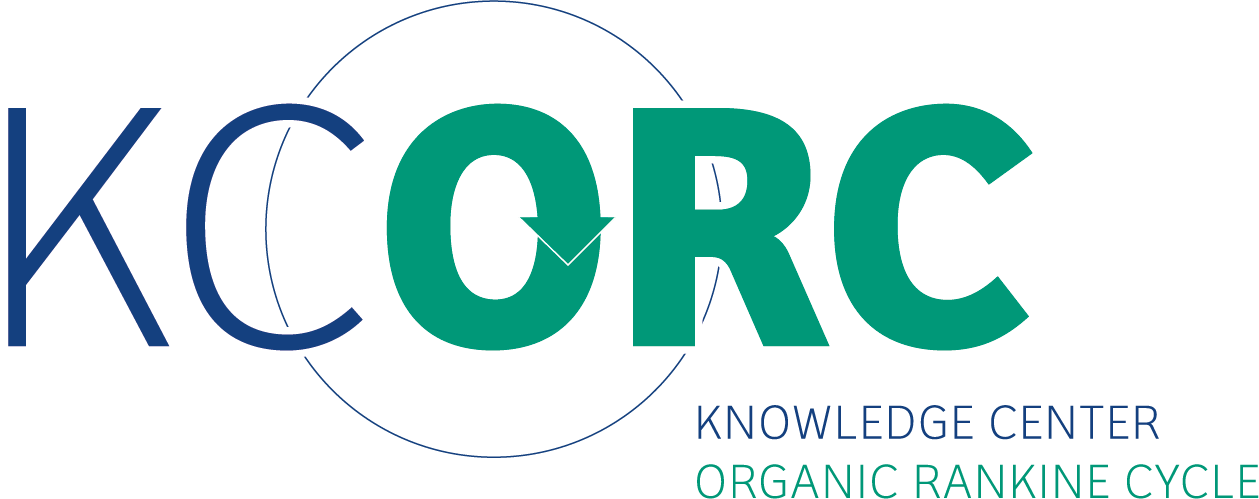Purpose
The KCORC scholarship is a competitive scholarship for students and researchers to pursue R&D projects in the field of ORC technology. The scholarships are intended to enhance educational experience of graduate students and young researchers as well as to foster knowledge exchange among professional researchers of the field.
The KCORC scholarship covers travel and accommodation costs related to short-term research projects of 3 – 6 months. The grants are 3,000 – 10,000 € depending on project duration and location of the hosting institution.
The eighth call for proposals is now open until November 30, 2024. The evaluation will be completed by the end of December 2024, and the awarded scholarships will begin in Spring 2025.
Eligibility requirements and how to apply
Any student and young researcher working in the field of ORC technology can apply to the research scholarships. The nominee must have obtained an academic degree (Bachelor, Master, PhD, or equivalent degrees) within five years from the year the applicant wishes to apply to the scholarship. The definition of the research project and the visit shall be organized by the applicant together with the hosting institution before applying.
Please send your application including the listed documents to the scholarship committee secretary.
- Curriculum vitae
- Project description, including the project timeline and the budget
- Motivational letter (addressing on how this project contributes to the knowledge exchange in the ORC field and how the developed knowledge is shared after the end of the project with the community)
- Support letter(s), with the statement that the hosting institution is willing to provide office space.
A template and guidelines for preparing your proposal can be downloaded using the button below. The Scholarship committee reservers the right to reject any applications that do not adhere to these guidelines.
Review process:
All complete applications are reviewed and ranked by the KCORC scholarship committee based on the selection criteria below. The number of granted applications is connected to the available resources which derive from the profit of the conferences, workshops and seminars organized by the KCORC association.
Selection criteria:
- Quality of the proposal (structure, clarity, language)
- Quality of the applicant
- Research project (relevance and originality)
- Impact on education / knowledge exchange / community (e.g., open source, open data)
- Budget plan (eligible costs: travel and accomodation expenses, fees for conferences at which results of the research are presented)
Our awardees
Marco Oliveti
Numerical Investigation of the Base Pressure Region in Supersonic Organic Flows through Direct Numerical Simulations
Institution: Politecnico di Milano, Italy
Host institution: University of Cambridge, UK
Project overview:
The minimal pressure found in the region at the rear of a blade’s trailing edge, the so-called base pressure, has a major impact on cascade losses and overall efficiency.
The complexity of investigating this region in supersonic organic flows, typical of ORC turbines, is heightened not only by the non-ideal behaviour of the working fluid but also by the interaction between base pressure, shock waves, and flow separations. RANS struggle to accurately define the phenomenon and a comprehensive exploration of how the base pressure influences the flow field in organic flows is notably absent in the existing literature.
In an attempt to overcome this knowledge gap, this research project has, as primary objective, the investigation of the base pressure problem in organic flows using Direct Numerical Simulations (DNS). The investigation will be developed at the Whittle Lab in Cambridge with the software 3DNS developed by Prof. Wheeler.
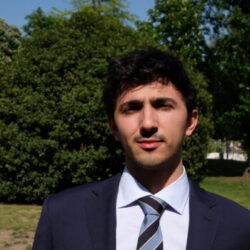

Joshua Kelly
Multi-point CAD-based Optimization of Radial Turbines for Organic Rankine Cycles
Institution: University of Liverpool, UK
Host institution: Delft University of Technology, The Netherlands
Project overview:
This research aims to continue the development of a robust, CAD-based methodology for the aerodynamic optimisation of radial turbines for high temperature ORC expanders. A multi-point approach will be utilised to improve efficiency at off-design conditions where performance of these machines rapidly deteriorates.
Alessio Secchiaroli
Optical measurement techniques for high-speed organic fluid flows
Institution: University of Brescia, Italy
Host institution: Delft University of Technology, The Netherlands
Project overview:
The aim of this project is to make non-instrusive optical measurement techniques such as Background Oriented Schlieren (BOS) and Partical Image Velocimetry (PIV) suitable for the characterization of the two-dimensional supersonic flow field occurgging in a converging-diverging nozzle, under highly non-ideal thermodynamic conditions.
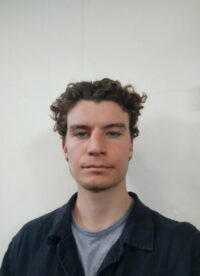
Alessandro Cappiello
Robust design of supersonic vanes operating with non-ideal flows
Institution: University of Naples Federico II, Italy
Host institution: Delft University of Technology, The Netherlands
Project overview:
The aim of the project is to develop a robusy design methodology for supersonic stator vanes of mini-ORC turbines that can eventually be used to establish novel design guidelines. The method will be based on a flexible vane parameterization that will enable the design to automatically obtain the optimal vane type and shape for a given application, and for abitrary working fluids.
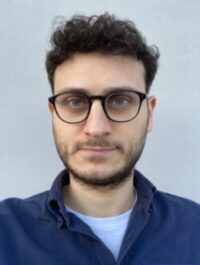
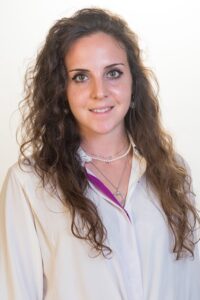
Chiara Poletto
Numerical and experimental investigation of Carnot batteries based on organic Rankine cycles
Institution: University of Bologna, Italy
Host institution: University of Liege, Belgium
Project overview:
The aim of the project is to advance knowledge of Carnot batteries based on the reversible organic Rankine cycle concept, namely a concept in which the power unit can be operated as heat-pump or ORC generator. Notably, the project will encompass modelling and tessting activities useing a novel 10 kW demonstrator under realization at the Thermodynamics Laboratory of the University of Liege.
Antonios Charalampidis
Experimental investigation of a small-scale prototype of a reversible heat pump/ORC-based thermally integrated Carnot Battery
Institution: National Technical University of Athens, Greece
Host institution: University of Liege, Belgium
Biography:
I received the Diploma degree in Mechanical Engineering at the National Technical University of Athens and am currently a PhD student at the Laboratory of Steam Boilers and Thermal Plants of NTUA, working on the field of heat pump, ORC, and reversible heat pump/ORC systems, participating in relevant projects.
Project aims:
The project aimed at operating a reversible heat pump/ORC system dedicated for Carnot Battery application, i.e., storage of electricity by upgrading heat for operating an ORC. The final aim of the project was the reliable operation of the unit and its characterization.
Summary of work:
The work undertaken included first the commissioning of the reversible system built in the host institution. In this context, all valves, actuators, motors, and circulator pumps, were connected to a dedicated developed control system. Following the commissioning, the system was operated in heat pump and ORC operating modes varying the low and the high temperatures of the system, thus simulating the operation of the thermally integrated Carnot Battery under different waste heat and storage temperatures, as well as storage temperature spreads (capacities). As a result of the experimental campaign, the system, and its main components (expander/compressor, heat exchangers) were characterized.
How the scholarship helped:
The scholarship had many positive outcomes. First, it provided experience in the design and operation of such systems, as it was the first time for me to be involved in experimental work. Moreover, the personnel of the host institution shared its experience and knowledge with me, which helped me improve my technical and analysis skills. In addition, it helped me to better orient towards this field and define the aims of my PhD thesis. Finally, it constituted the starting point of collaboration between the two institutions leading to further collaboration in similar projects and knowledge exchange.
Key outputs:
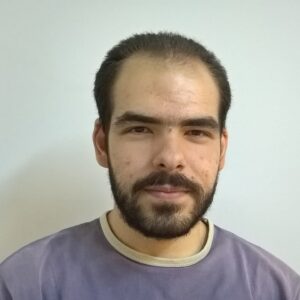
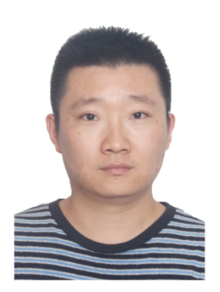
Haoshui Yu
Power generation from LNG regasification: techno-economic comparison between ORCs and sub/trascritical CO2 cycle considering process design and optimization
Institution: NTNU, Norway
Host institution: KU Leuven, Belgium
Biography:
Dr. Haoshui Yu was a postdoc at Norwegian University of Science and Technology when he won the scholarship in 2019. Armed with the honour of the KCORC scholarship, Dr. Haoshui Yu obtained a postdoctoral position at MIT and a Marie Curie Individual Fellowship at Technical University of Denmark. Currently, Dr. Haoshui is an Associate Professor at Aalborg University.
Project aims:
The project aimed at the optimal conceptual design of an integrated power cycle system utilizing LNG cold energy. Specifically, the project aimed at comparing the component size and manufacturing costs for ORC and CO2 power cycles for LNG cold energy utilization.
Summary of work:
Single- and dual-cycle power generation systems were proposed and modelled within this study. A single unified model was developed in the Python language and that is able model different cycle configurations (subcritical, transcritical, supercritical). The rigorous thermodynamic model and system configuration model are established based on the CoolProp platform.
How the scholarship helped:
The scholarship enhanced the collaboration with Prof. Sylvain Quoilin who is a prominent expert in the field of thermal power systems and smart energy systems. I won this scholarship in 2019 and the scholarship helped me a lot during my job search, which eventually led to being appointed as an Associate Professor at Aalborg University in September 2021. The scholarship has certainly been beneficial to my research as well as my career.
Key outputs:
Yongqiang Feng
Working fluid selection and thermo-economical optimization of organic Rankine cycle using nano-mixture working fluids
Institution: Jiangsu University, China
Host institution: Imperial College London, United Kingdom
Biography:
I am Yongqiang Feng, Associate Professor of Jiangsu University. I have undertaken a significant amount of work on the thermo-economic optimization of ORC systems in this context, and published over 20 papers and books on this topic. I have proposed models for working-fluid mixtures and have also conducted a series of experimental tests on the operational characteristics of a 3-kWel ORC prototype when using 3 working-fluid mixtures (0.67R123/0.33R245fa, 0.50R123/0.50R245fa and 0.33R123/0.67R245fa) along with a comparison against 2 pure working fluids (R123 and R245fa).
Summary of work:
I am now currently leading an on-going project to improve the thermo-economic proposition of ORC systems by employing nano-mixture working fluids, in which nano-particle additives are used to overcome the known limitations of phase-change heat transfer experienced by multi-component fluid mixtures. This can provide a solution to the known heat-exchange performance deterioration experienced when using mixtures and unlock their promise in reducing the thermo-dynamic irreversibility associated with heat-transfer in the cycle, and improving its efficiency.

Silvia Lasala
Optimal working fluids for organic Rankine cycles and CO2-based transcritical cycles
Institution: Politecnico di Milano – University of Brescia, Italy
Host institution: University of Lorraine, France
Biography:
Silvia Lasala is an Assistant Professor at ENSIC-LRGP (of University of Lorraine) in chemical and energy engineering. The main purpose of her research is to contribute to the improvement of the efficiency of energy conversion technologies for electrical and thermal power production. She is also editor in chief of the International Journal of Energy, Environment and Economics.
Project aims:
The main aim of the project was to develop an open-source computer program to enable the optimization of binary mixtures for closed power cycles of pre-defined configurations, considering heat sources and sinks characterized by user-defined temperature profiles. The program had to incorporate the most robust algorithms for the calculation of thermodynamic properties of multicomponent systems by cubic equations of state, accounting for the presence of reversible chemical reactions.
Summary of work undertaken:
During my period at LRGP I developed the program the computer program that was mentioned above. Although the platform could not be created to distribute the program freely, I sent it to Politecnico di Milano to allow some researchers to perform the calculations obtained in their publications (see section “Key outputs”). The work undertaken has allowed me to strengthen my collaboration with LRGP, and to create a new research track aimed at designing novel REACTIVE working fluids for thermodynamic cycles (power – heat and refrigeration). The program, developed thanks to the scholarship, included a property calculation package allowing the calculations for reactive mixtures. That is currently my main research field.
How the scholarship helped:
During my period at LRGP I developed the program the computer program that was mentioned above. Although the platform could not be created to distribute the program freely, I sent it to Politecnico di Milano to allow some researchers to perform the calculations obtained in their publications (see section “Key outputs”). The work undertaken has allowed me to strengthen my collaboration with LRGP, and to create a new research track aimed at designing novel REACTIVE working fluids for thermodynamic cycles (power – heat and refrigeration). The program, developed thanks to the scholarship, included a property calculation package allowing the calculations for reactive mixtures. That is currently my main research field.
Key outputs:
Results were presented in September 2017 at the IV International Seminar on ORC Power Systems, ORC2017. The program that I developed has also enabled me to perform calculations in the context of a European H2020 project (REGEN-BY-2) and the new field of research on reactive working fluids has allowed me to be awarded by a National (French) Grant (ANR-JCJC) a grant of 220k€ to develop the project.
Conference papers:
- Silvia Lasala, Davide Bonalumi, Ennio Macchi, Romain Privat, Jean-Noel Jaubert. The design of CO2-based working fluids for high-temperature heat source power cycles. Energy Procedia, Volume 129, September 2017, pages 947–954. A contribution to the IV International Seminar on ORC Power Systems, ORC2017
- Marco Astolfi, Silvia Lasala, Ennio Macchi. Selection maps for ORC and CO2 Systems for low-medium temperature heat sources. Energy Procedia, Volume 129, September 2017, pages 971–978. A contribution to the IV International Seminar on ORC Power Systems, ORC2017
Journal papers:
- Marco Astolfi, Dario Alfani, Silvia Lasala, Ennio Macchi. Comparison between ORC and CO2 Systems for the exploitation of Low-Medium Temperature Heat Sources. Energy 2018, 161, 1250-1261.
- Davide Bonalumi, Silvia Lasala, Ennio Macchi. CO2-TiCl4 working fluid for high-temperature heat-source power cycles and solar applications. Renewable Energy 147, 2020, 2842-2854.

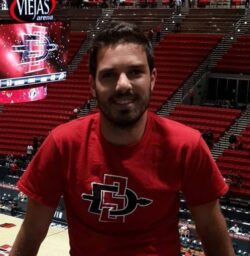
Lorenzo Tocci
Dynamic modelling and simulation of waste heat recovery systems based on the ORC technology using Artificial Neural Networks
Institution: University of Rome, Italy
Host institution: Brunel University London, United Kingdom
Biography:
I am Lorenzo Tocci, a PhD student at “La Sapienza” University of Rome and I have been granted with the KCORC Scholarship for the research project “Dynamic modelling and simulation of waste heat recovery systems based on the ORC technology using Artificial Neural Networks” under the supervision of Prof. Apostolos Pesiridis from Brunel University (London, UK).
Project aims:
The project aims at investigating the potential of Artificial Neural Networks in modelling the transient operations of ORC systems. Dynamic models characterize the behavior of ORC systems under transient conditions. The dynamic analysis is extremely important for applications in which the duty cycle of the heat source presents fluctuating behavior such as vehicle or solar applications. Artificial neural networks (ANNs) allow to derive the transfer function between input and output variables, without the need to derive a mathematical model based on the physics of the process. ANNs can reduce the computational time of traditional modelling techniques, which is crucial in the actuation of an optimized control system. The model will be validated against the experimental data from a 20 kW ORC system, currently installed at Brunel University.
Key outputs:
Joshua Keep
Academic exchange between The University of Queensland and Delft University of Technology
Institution: The University of Queensland, Australia
Host institution: Delft University of Technology, The Netherlands
Biography:
Dr Joshua Keep C.Eng. is an early career from the University of Queensland in Brisbane, Australia. His key research interests are fluid mechanics of high power density turbomachinery, namely supercritical CO2 turbines and rocket turbopumps. Other research interests include compressible flow devices.
Project aims:
The aim of this academic exchange was focuseed on three objectives:
- Assist with commissioning of the ORCHID test facility at Delft
- Conduct simulations of the ORCHID test facility and relevant geometries prior to experiment, leverage in house expertise and access to proprietary CFD codes
- Conduct an experimental campaign on the ORCHID facility
Summary of work:
During part of this stay, I predominantly worked on two main areas. The first involved working on numerical simulations that contributed towards the verification and validation of the CFD solver SU2 for turbomachinery applications. The second focussed on numerical studies investigating the design of components for supercritical CO2 radial inflow turbines, which included exploring shape optimisation methods.
How the scholarship helped:
I used the KCORC scholarship to extend a 3 month visit to TU Delft. The scholarship was instrumental in extending my stay at TU Delft and enabled me to refine many research ideas. The bulk of work (including publications) completed during this stay was during this time that was funded by the KCORC scholarship.
Key outputs:
The work conducted as part of this project led to two publications:
- The work on SU2 that was conducted with host group collaborators was presented at ORC2017: Keep, J.A., Vitale, S., Pini, M., Burigana, M., 2017, Preliminary verification of the open-source CFD solver SU2 for radial-inflow turbine applications, Energy Procedia, 129, 1071-1077.
- The work completed on sCO2 component design was incorporated into my PhD thesis and published in as the following journal article: Keep, J.A., Jahn, I.H.J., 2019, Design of an annular-radial diffuser for operating with a supercritical CO2 radial inflow turbine, ASME Journal of Engineering for Gas Turbines and Power, 141(8), 081020.

Olivier Dumont
Numerical and experimental analysis of a supercritical ORC system for biogas power plant application
Institution: University of Liege, Belgium
Host institution: Queen’s University Belfast, United Kingdom
Biography:
Olivier Dumont obtained his master’s in Mechanical Engineering at the University of Liège in 2010. He then worked in the ORC field between 2012 and 2017 as a PhD, and from 2017 to now as a postdoctoral researcher at the University of Liège. He has worked on the modelling, sizing and experimentation of heat pumps, organic Rankine cycles and thermal energy storage technologies.
Project aims:
The aim of the project was to characterize numerically and experimentally an ORC system for a biogas plant. In particular, the idea was to develop a transcritical CO2 cycle.
Summary of work undertaken:
In this project, different tasks were completed:
- A literature review including CO2 cycles, including market and techno-economic aspects
- A numerical model able to perform a tecno-economic comparison between wet expansion, trans-critical and classical ORC cycles was developed
- Experimental characterisation of the trans-critical CO2 cycle was developed at Queen’s University Belfast
How the scholarship helped:
The successful completion of this project allowed:
- The start of a close collaboration between the University of Liège and Queen’s University Belfast
- Increase the knowledge about trans-critical cycles, through both numerical and experimental investigations
- Develop guidelines to understand which architecture of ORC is optimal depending on the working conditions
- Assess the economic profitability of an ORC power system in the biogas sector
Key outputs:
Giuseppe Bianchi
CFD analysis on a sliding vane rotary expander for ORC-based exhaust heat recovery in heavy duty automotive applications
Institution: University of L’Aquila
Host institution: City, University of London
Biography:
Dr Giuseppe Bianchi is a Research Fellow at Brunel University London where he conducts research on industrial waste heat to power conversion systems based on bottoming thermodynamic cycles (ORC, TFC, sCO2). His research expertise includes thermofluids and positive displacement machinery. He is author of 50+ peer reviewed journals and conference papers.
Project aims:
The funded research aimed at filling a gap of knowledge and tools that were limiting the application potential of sliding vane technology as expanders in small-scale ORC systems. To this end, the research proposed to develop a methodology that would enable the use of computational fluid dynamics to design and optimise sliding vane expanders.
Summary of work:
The KCORC research allowed the development of an analytical grid generation methodology based on the user defined nodal displacement which discretizes the moving and deforming fluid domain of sliding vane machines and ensures conservation of intrinsic quantities by maintaining the cell connectivity and structure. The methods and algorithms developed have enabled the use of commercial and open-source 3D CFD tools to investigate rotary vane machines in academia and industry. The methodology has been validated against indicative pressure measurement data on a small-scale ORC expander. Simulation results provide interesting insights on the flow topology of sliding vane machines.
How the scholarship helped:
The KCORC scholarship allowed me to carry out my first research experience as principal investigator, which to me means managing the research alongside conducting it. The competitiveness of the funding and the prestige of the award further enhanced my confidence in doing and leading research. The impact of the research boosted my reputation within the positive displacement machine and ORC communities. This outreach allowed me to progress with the research also beyond the scholarship by advising a visiting doctoral researcher from a top university in China. Besides the invited keynotes in international conferences and guest-editorial roles in top energy journals, the KCORC award was definitely a plus when I applied to academic qualifications in Italy and the UK.
Key outputs:
- G. Bianchi et al., Numerical CFD Simulations and Indicated Pressure Measurements on a Sliding Vane Expander for Heat to Power Conversion Applications. Designs 2019, 3, 31.
- G. Bianchi et al., Deforming grid generation for numerical simulations of fluid dynamics in sliding vane rotary machines, Advances in Engineering Software, 2017, 112, 180-191.
Conference proceedings:
- G. Bianchi et al., Numerical CFD simulations on a small-scale ORC expander using a customized grid generation methodology, Energy Procedia, 2017, 129, 843-850.
- G. Bianchi et al., Grid generation methodology and CFD simulations in sliding vane compressors and expanders, Proceedings of the 10th International Conference on Compressors and their Systems, IOP Conference Series: Materials Science and Engineering, 2017, 232(1), 012053.
- G. Bianchi et al., Development of a general numerical methodology for CFD analyses in sliding vane machines and application on a mid-size oil injected air compressor, in: Proceedings of the International Compressor Engineering Conference, Purdue University, 2016.
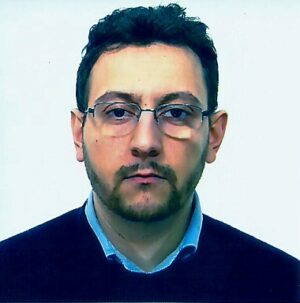
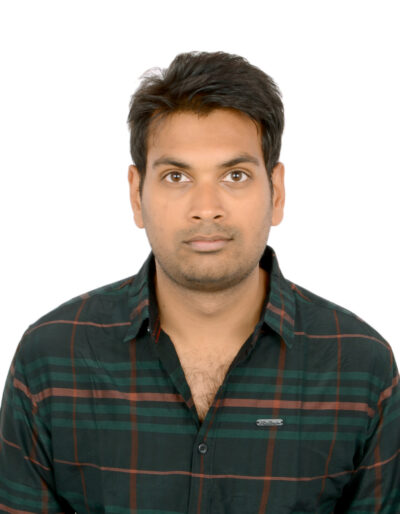
Pardeep Garg
Institution: Indian Institute of Science
Host institution: Massachusetts Institute of Technology
Biography:
I am Pardeep Garg, PhD. candidate at the Indian Institute of Science (IISc) in Bangalore, India. I am about to submit my thesis and would join as a post doc at Massachusetts Institute of Technology, US with the help of the KCORC 2015 scholarship.
Summary of the project:
The project that I will carry out explores the design space for hybrid solar ORC systems and provides deeper insight into the thermo-economic optimization of micro-grids involving ORC. This work will enhance our understanding of the opportunities and dynamics involved in hybrid solar ORC systems with thermal energy storage, with an aim to minimize the specific costs of the power generation and the storage. A new scheme of power generation is proposed that couples concentrated PV to solar thermal to charge a dual hot/cold thermal energy storage system. Concentrated solar thermal and engine genset waste heat recovery contribute to charging the hot tank, while the cold storage is charged using a high COP vapour compression chiller during periods of surplus PV electricity. This thermal storage is charged in the hours of peak insolation and discharged via an economically optimized ORC with a mixture based working fluid. This scheme of power generation has the potential of reducing the cost associated with electro-chemical batteries and helps in providing un-interrupted power supply.
Key outputs:
Results of this collaboration project sponsored by KCORC will be published in the next ORC conference and the appropriate platform in terms of presentations, peer reveiwed journals, web based media and other channels.
Davide Ziviani
I am Davide Ziviani, PhD student at Ghent University (Belgium) and I have been granted with the KCORC Scholarship for the research project “Organic Rankine Cycle with Liquid Flooded Expansion (ORCLFE) using a Screw Expander and Internal Heat Regeneration for Waste Heat Recovery” under the supervision of Prof. Eckhard A. Groll from Purdue University (Indiana, USA). The Scholarship covers the expenses during the stay at Purdue University from May to October 2014.
The project focuses on evaluating the performance of a twin-screw expander with significant amounts of flooding, in order to investigate the improvements on the overall efficiency of an ORC system. Furthermore, flooded expansion with internal regeneration offer significant efficiency improvements to ORC system
Due to the presence of the liquid phase, positive displacement expanders play a crucial role to ensure the power output from the system. A detailed expander simulation model will be developed that combines the aspects of the hydraulic expansion of the liquid and the simultaneous expansion of the superheated vapor. First, the model will be based on a geometric description of the expander, which will allow the integration of a multi-chamber approach in order to compute the leakage flows accurately. Secondly, by introducing different control volumes for gas and liquid phases, the heat transfer rate can be calculated and, consequently, the impact of different flooding-ratios can be predicted.
Liquid-flooded expansion is a novel concept and until now the scientific literature on the subject is limited. Since the overall efficiency of a screw-type volumetric expander is generally higher than that of a scroll expander, evaluating the performance of the ORCLFE is particularly promising. Proving the feasibility of quasi-isothermal expansion experimentally, represents an important achievement for the whole ORC community and opens the door to new highly efficient solutions for ORC systems.
The projet results have been submitted for publication: D. Ziviani, B.J. Woodland, E. Georges, E.A. Groll, J.E. Braun, T.W. Horton, M. De Paepe, M. van den Broek. Development of general organic Rankine cycle simulation tool:ORCSIM. ECOS 2015 – The 28th International Conference on Efficiency, Cost, Optimization, Simulation and Environmental Impact of Energy Systems, June 30 – July 3, Pau, France.
and D. Ziviani, B.J. Woodland, E. Georges, E.A. Groll, J.E. Braun, T.W. Horton, M. De Paepe, M. van den Broek. ORCSIM: A Generalized organic Rankine cycle simulation tool. ASME ORC 2015 – 3rd International Seminar on ORC Power Systems, October 12-14, Brussels, Belgium


Leonardo Pierobon
I am Leonardo Pierobon and I shall use the KCORC Scholarship for Virtual prototyping of mini-ORC power units for rapid design development and implementation. This project aims at developing an open-source simulation tool for the design of high-efficiency and cost-competitive organic Rankine cycle (ORC) turbogenerators based on the virtual prototyping concept. Design 1-D and 2-D models of plant´s constituents will be included in a component library after an in-depth validation against numeric values available in the literature and with experimental data from test facilities. The steady-state models will thus serve to construct virtual prototypes of ORC power units. Different design candidates will then be tested under severe operating conditions with dynamic models to spot possible system malfunctions. The project will be carried out in collaboration with the Technical University of Denmark and the Delft University of Technology.
Konstantinos Braimakis
I am Konstantinos Braimakis and I am currently participating in research regarding innovative ORC improvement strategies such as the supercritical ORC and the utilization of zeotropic mixtures as working fluids by following a holistic approach including not only thermodynamic but also technical and economic criteria. Furthermore, I am involved in the development of an ORC-micro scale power plant (15 kWe) aimed at investigating the potential of the ORC for waste heat-to-power conversion (http://kcorc.org/en/rd-projects/orc-micro-power-plant/). The mentioned project is extended until 2015 in order to build up an ORC test field for different kinds of turbines, evaporators and plant designs.
The projet results have been published in: K. Braimakis, A.-D. Leontaritis, M. Preißinger, S. Karellas, D. Brüggeman and K. Panopoulos. Waste heat recovery with innovative low-temperature Organic Rankine Cycle based on natural refrigerants. In Proceedings of ECOS 2014 – The 27th International Conference on Efficiency, Cost, Optimization, Simulation and Environmental Impact of Energy Systems June 15-19, 2014, Turku, Finland.
The results have been published in the ECOS 2014 special issue of the journal Energy: Low grade waste heat recovery with subcritical and supercritical Organic Rankine Cycle based on natural refrigerants and their binary mixtures.
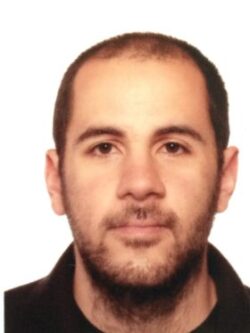
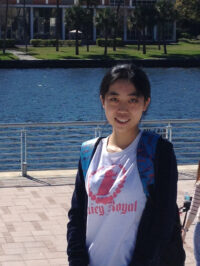
Huixing Zhai
I am Huixing Zhai from Tsinghua University. My short-term research project will deal with the simulation of waste heat recovery ORC system using mixtures as working fluid. I will participate to the ongoing work in Liège regarding fluid mixtures modeling, and will integrate this mixtures model in a more general optimiztion model of the waste heat recovery ORC system.
Emiliano Casati
I am Emiliano Casati, PhD candidate at Delft University of Technology, The Netherlands. I will be defending my thesis next September and, afterwords, I will continue as a PostDoc researcher in another institution. The funding provided by this scholarship will allow me to keep on collaborating with my colleagues at TU Delft, working at the FAST experimental setup to finally achieve the goal of proving the existence of the rarefaction shock wave.

